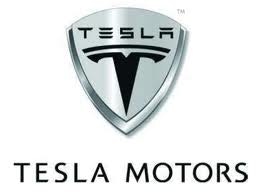Investing in highly shorted stocks is always risky business, especially when these stocks have some of the highest short interest around. The five stocks below all have short interest in excess of 40%, but could be worth taking a look at on the long side. One slight problem with highly shorted stocks is that they are sometimes shorted for a reason. Question is; is the short interest overdone and is their reason to go long any, or all, of these stocks? The five stocks below are highly shorted, but could be worth a closer look for investors looking to add a little speculation to their portfolio.

Stock Performance | Skullcandy | Vera Bradley (NASDAQ:VRA) | Deckers | Coinstar | Tesla |
| Trailing Twelve Months | -43% | -24% | -51% | 16% | 66% |
| Five Years | -64% | -6% | 0% | 100% | 97% |
Skullcandy Inc (NASDAQ:SKUL) has 53%short interest and manufactures headphone and other audio products. The stock is down nearly 40% over the last twelve months and hedge fund interest has been relatively weak for the headphone company. The squeeze, short squeeze that is, has been coming for some time, but Skullcandy is still waiting. The stock is down over 50% over the last six months alone despite meeting or beating earnings in each of the last four quarters. This company is like a number of others below, still growing and still profitable, but getting little attention from long investors, and a lot of attention from shorts. The slowdown may well be attributed to the over-focus of its business model, which relies heavily on consumer discretionary spending. However, with declining unemployment and an improving economy, the company should be able to achieve its projected (by Wall Street analysts) 18% five-year annual earnings growth.
With a market cap of only $180 million, Skullcandy could also be the target of a buyout. Bloomberg even reported that the sharp decline in the stock in the past eighteen months has made the company an attractive takeover target. Skullcandy’s long-term initiatives relate to its plans to expand beyond the U.S., which has been its primary market. Skullcandy is trading at a 7 times earnings, where the industry is near 12 times. Other key metrics that bode well for the valuation includes its S&P relative value. Compared to the S&P 500 price to earnings ratio, Skullcandy has traded at 98% of the S&P 500 P/E over the last five years (on average), but now only trades at 47%.
Vera Bradley, Inc. (NASDAQ:VRA), with around 53% short interest, is a designer and producer of accessories for women, including handbags and leisure items. Vera also has billionaire Steven Cohen as one of its top investors (check out all the hedge funds loving Vera). Vera recently upped its fourth quarter 2012 revenue and earnings guidance, as well as gross margin expectations, now expected to expand 140 basis points for the quarter, year over year. Much of company’s previous weakness has been related to inventory buildup; a problem that management has identified and foresees no issues in being able to move this year. Despite consumer spending weakness in the past, Vera plans to capitalize on an improving economy and even added 54 locations in Dillard stores during the third quarter. Other expansion efforts includes its early-stage entry into Japan. Vera, much like Skullcandy, looks cheap on a relative S&P 500 P/E basis. The company has traded around 150% of the S&P 500 P/E over the last five years, but currently trades at 105%. Vera also boosts one of the top returns on equity at 44%, compared to 16% industry average.
Deckers Outdoor Corp (NASDAQ:DECK) has around 43% short interest, seeing much of this short interest thanks to warmer than expected weather, which has led to above average inventory levels at retailers. The third quarter results showed solid progress, with inventory being reduced and expected to return to normal levels by the second quarter of 2013. Two of Deckers’ growth initiatives include selling direct to wholesale consumers and international expansion. The real opportunity lies in its plans to enter the Asian market, where it believes its UGG brand boots will flourish. The company has increased its stores in China to 20, versus the previous 7 and plans to add 8 more this quarter. With earnings expected to reach $3.72 per share in 2013, the year over year EPS growth would come to 11%. The company also has a long-term sales target of $2.4 billion by 2015 that translates into an annual growth rate of 15% since 2011. At the end of the third quarter, Luxor Capital was a big-time hedge fund supporter of Deckers’ (check out Luxor’s portfolio).
Among its top shoe competitors, Deckers is on the low-end on both a price to sales and price to earnings basis:
| Price to Sales | Price to Earnings | |
| Deckers | 0.97 | 10.00 |
| Crocs | 1.17 | 9.80 |
| Steven Madden | 1.51 | 19.50 |
| Wolverine World Wide | 1.38 | 19.70 |
On a relative S&P basis, Coinstar is trading with a price to earnings multiple that is 70% of the S&P 500, compared to its five-year average of 170%. To boot, Coinstar is trading with a price to earnings multiple of 10.4 versus the industry average of 15.6. With an industry low price to earnings multiple and robust long-term expected earnings growth (17.5%), Coinstar could well be considered a ‘growth at a reasonable price’ opportunity, with a PEG ratio of only 0.6.
Tesla Motors Inc (NASDAQ:TSLA) has 40% short interest and a business model that focuses on electric vehicles (EVs). Tesla Motors produces electric cars, from sports cars to mass-market vehicles. Tesla also turned cash flow positive for the first time in its history in early December. Unlike its top car making peers, such as Toyota and GM, Tesla has the advantage of being build from the ground up to make and produce EVs (read more why EVs are a possibility and not inevitable). Much uncertainty remains on whether the company’s products will catch on in a mass-market sort of way, especially given the average sales prices for its products are upwards of $100,000. Assuming management execution comes to fruition and Tesla can leverage its infrastructure for producing EVs to achieve above average margins, the company could easily blow through its long-term expected earnings growth rate of 37%.
Foolish reminder. Worth noting is that sometimes a stock is indeed shorted for a reason, but just like long investors can be wrong, so can shorts. In any case, use caution, judgment and due diligence.
The article 5 Longs Of The Shorts originally appeared on Fool.com and is written by Marshall Hargrave.
Copyright © 1995 – 2013 The Motley Fool, LLC. All rights reserved. The Motley Fool has a disclosure policy.



